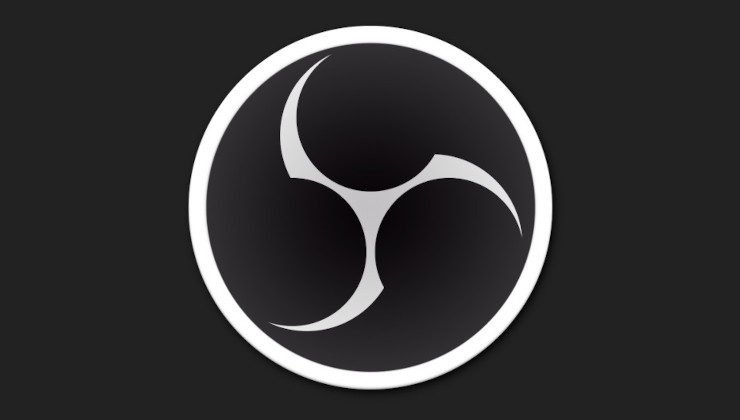Playtron continue building up their PlaytronOS / GameOS (they don't seem to have settled properly on a name yet) alternative to SteamOS and Windows with a second Alpha release out now.
If you're just joining us and have no idea what PlaytronOS actually is. It's a Linux-powered distribution (specifically it's based on the Fedora Silverblue family of Atomic Desktop distros) that aims to play games from Steam, Epic Games, GOG and other platforms out of the box with a sleek interface and everything built-in so you don't need any external launchers. A good idea for handhelds, and they will support desktops and other devices too.
Here's all that's new:
Hardware Support
- NVIDIA support for Turing (GeForce GTX 1600/2000 series) and newer cards
- Support for dual-GPU systems such as desktops and laptops
- OS upgrade from Fedora 40 to Fedora 41
- Support for portal-based Wi-Fi connections
- These devices have been tested by Playtron and are known to work:
- AYANEO 2 and 2S
- ASUS ROG Ally
- Lenovo Legion Go
- Valve Steam Deck LCD (NVMe only)
- Valve Steam Deck OLED
New & Updated Features
- Full cloud save support with conflict resolution for Epic Games Store and GOG.com games
- App details page with game metadata and actions
- Full support for mouse and keyboard input
- New sound effects
- Basic avatar system
- Select custom game input configurations some text
- A limited selection of inputs are provided by the Playtron team as part of the Alpha 2 launch
- Input configuration creation will be one of the features of our upcoming tool Playtron Labs
- Timezone support
- Up to 2x battery usage improvement in OS
- Over 100 bugs identified and fixed
I'm keen to see where they go with it, but they need to settle on a name properly and stop flip-flopping between PlaytronOS and GameOS whenever they talk about it. That, and their earlier marketing was quite silly, but they do seem to have cleaned up their website quite a lot. My other concern is how locked down they will keep it, as per their FAQ:
At first, only the operating system code will be open source. We have plans to open source more and release API documentation to allow developers in the community to contribute and build their solutions using Playtron.
Since it's Linux, it will have all the same anti-cheat problems that SteamOS has on Steam Deck too. They still say they're "working with interested partners to enable anti-cheat services" but until they have a proper release with more hardware, I don't see anything changing there. Valve have sold multiple millions of Steam Decks now, and we still see companies newly blocking it like GTA Online and Apex Legends. You can keep up to date on our new anti-cheat page (more info in my forum post).
The only device that has been announced with it so far is still the weird SuiPlay0X1, a $599 handheld from a web3 / blockchain company that talks about NFTs and crypto.
You can download Alpha 2 from their website.
Since they're into crypto and "web3", I'm also waiting for the inevitable rugpull.
Still waiting on how they're gonna tackle anti-cheat stuff.
Since they're into crypto and "web3", I'm also waiting for the inevitable rugpull.
I think they will fully lock the kernel down.
Blockchain fans often scream a lot about openness without practicing it.
Expect: secure boot, tpm, utilization of the TXT patch and proprietary drivers.
Probably also: hsm.
I would when placed in this position lock down the boot loader, but not the rest of the kernel and advertise and improve KASSLR(kernel address space layout randomization) and add ASSLR capabilities to Godot and/or a popular FOSS game installer.
I would lock down the bootloader, because although I think I've designed a KASSLR protocol that can proof to games that it's implemented with a non-compromised seed, I've yet to find a way to proof that the seed wasn't shared in a way that structurally compromises the the security of the system without locking down the bootloader(which is still an improvement to the full lockdown/Android solution, but not the best).
I see the most hope in assymetric cryptographic primitives for fixing this.
Last edited by LoudTechie on 26 Nov 2024 at 2:20 pm UTC
1. Force the game developers to weaken their anti-cheat for your system (not going to happen with the current number of players)
2. Start cryptographically verifying kernels and bribe a bunch of game companies into supporting those particular kernels. This also does not seem likely to work long-term.
3. Cloud gaming...
So... Just NVK?
There are only three ways to beat the Anti-Cheat problem:
1. Force the game developers to weaken their anti-cheat for your system (not going to happen with the current number of players)
2. Start cryptographically verifying kernels and bribe a bunch of game companies into supporting those particular kernels. This also does not seem likely to work long-term.
3. Cloud gaming...
Would kernel verification really be satisfactory for these anti-cheat companies? Why isn't that a thing already? Difficult to implement?
I don't mind if all it takes to prove I'm "safe" is just checking if my kernel comes straight from Fedora unmodified, doesn't sound like an issue st all for me.
And if one uses custom kernels, then I think an easy solution is to just have the distro's official kernel installed alongside the modified kernel, and whenever one wishes to play one of those spyware games, just reboot into the distro's kernel and play the game.
> NVIDIA support for Turing (GeForce GTX 1600/2000 series) and newer cards
So... Just NVK?
We're using the NVIDIA proprietary 565 driver in Alpha 2. As excited as we are about the future NVK, it's currently slow, buggy, and doesn't support key features like DLSS. My team spent months getting the driver to work properly with Gamescope. We are currently in the process of upstreaming our learnings to related open source projects!
It's how they do it on Windows currently(yes, this has issues), but whether or not it's satisfactory is the "convincing" part @pleasereadthemanual mentioned.There are only three ways to beat the Anti-Cheat problem:
1. Force the game developers to weaken their anti-cheat for your system (not going to happen with the current number of players)
2. Start cryptographically verifying kernels and bribe a bunch of game companies into supporting those particular kernels. This also does not seem likely to work long-term.
3. Cloud gaming...
Would kernel verification really be satisfactory for these anti-cheat companies? Why isn't that a thing already?
It's a thing already it's how Android and Apple do it(Android's version is slightly more complicated, but it also does this).
Difficult to implement?yes(It's cryptography, market politics, infosec and hardware design combined), but most of it has already been implemented by the AOSP(android open source project), the trusted computing group, Microsoft and hardware manufacturers.
Some distros even have packages with signed bootloaders(for secure boot).
I don't mind if all it takes to prove I'm "safe" is just checking if my kernel comes straight from Fedora unmodified, doesn't sound like an issue st all for me.You don't many others with a lot of power in the Linux space do.
Remember these people wrote their own compiler, kernel, bootloader and bios, just to be able to change on their computer whatever they want.
Read the website of the FSF to get a sense what these are capable of to achieve this.
The reason they will probably give first is Tivolisation. The trusted vendor will find themselves in a dominant position and start exploiting that position by implemenenting more api's that only they've(cough, cough, google play services and safety net), so nobody else will be able to run any program that can run on their platform and thus make them the only game in town(yes, microg exists, but that is just wine for android).
Also would you be willing to give up most of to all of your distro's packages for this, because the current package managament system on most Linux distros(yes, also Fedora) gives everything installed through it root(flatpack and snap are attempts at fixing this, but we're still far away from a good local package manager)
And if one uses custom kernels, then I think an easy solution is to just have the distro's official kernel installed alongside the modified kernel, and whenever one wishes to play one of those spyware games, just reboot into the distro's kernel and play the game.Good point especially with "Game Mode" already existing.
In summary what would be needed for this:
A major distro or vendor(like Valve) needs to implement measured boot on their distro, convince some anti-cheat providers to use it and convince some games to trust it.
Secure boot isn't enough, because it only proofs to someone with physical access to the device that the kernel is trusted.
This is supported on both ARM an X86(_64).
Also the players should be willing to risk tivolisation.
Contrary to @pleasereadthemanual I don't believe these to be the only three possible ways, but that is worth its own post.
Last edited by LoudTechie on 28 Nov 2024 at 12:24 am UTC
I don't mind if all it takes to prove I'm "safe" is just checking if my kernel comes straight from Fedora unmodified, doesn't sound like an issue st all for me.I imagine SteamOS or PlaytronOS would be the only distributions with kernels game companies/anticheat vendors would be willing to accept. Is it possible to reproducibly build kernels? If so, maybe other distributions could package and build the same kernels for their users without a need to install another Linux distribution just to play a subset of EAC games that have allowed Linux kernels.
It's how they do it on Windows currently(yes, this has issues), but whether or not it's satisfactory is the "convincing" part @pleasereadthemanual mentioned.There are only three ways to beat the Anti-Cheat problem:
1. Force the game developers to weaken their anti-cheat for your system (not going to happen with the current number of players)
2. Start cryptographically verifying kernels and bribe a bunch of game companies into supporting those particular kernels. This also does not seem likely to work long-term.
3. Cloud gaming...
Would kernel verification really be satisfactory for these anti-cheat companies? Why isn't that a thing already?
It's a thing already it's how Android and Apple do it(Android's version is slightly more complicated, but it also does this).
Difficult to implement?yes(It's cryptography, market politics, infosec and hardware design combined), but most of it has already been implemented by the AOSP(android open source project), the trusted computing group, Microsoft and hardware manufacturers.
Some distros even have packages with signed bootloaders(for secure boot).
I don't mind if all it takes to prove I'm "safe" is just checking if my kernel comes straight from Fedora unmodified, doesn't sound like an issue st all for me.You don't many others with a lot of power in the Linux space do.
Remember these people wrote their own compiler, kernel, bootloader and bios, just to be able to change on their computer whatever they want.
Read the website of the FSF to get a sense what these are capable of to achieve this.
The reason they will probably give first is Tivolisation. The trusted vendor will find themselves in a dominant position and start exploiting that position by implemenenting more api's that only they've(cough, cough, google play services and safety net), so nobody else will be able to run any program that can run on their platform and thus make them the only game in town(yes, microg exists, but that is just wine for android).
Also would you be willing to give up most of to all of your distro's packages for this, because the current package managament system on most Linux distros(yes, also Fedora) gives everything installed through it root(flatpack and snap are attempts at fixing this, but we're still far away from a good local package manager)
And if one uses custom kernels, then I think an easy solution is to just have the distro's official kernel installed alongside the modified kernel, and whenever one wishes to play one of those spyware games, just reboot into the distro's kernel and play the game.Good point especially with "Game Mode" already existing.
In summary what would be needed for this:
A major distro or vendor(like Valve) needs to implement measured boot on their distro, convince some anti-cheat providers to use it and convince some games to trust it.
Secure boot isn't enough, because it only proofs to someone with physical access to the device that the kernel is trusted.
This is supported on both ARM an X86(_64).
Also the players should be willing to risk tivolisation.
Contrary to @pleasereadthemanual I don't believe these to be the only three possible ways, but that is worth its own post.
Many thanks for the breakdown. I thought with kernel verification, what I meant was just something simple like checking cheksums or something (you can tell I'm no programmer), but if it's going to have to be like Windows/secure boot/Android's awful safetynet system, then fuck no lol. What I had in mind was basically sacrificing one kernel slot at worst, but these solutions? Absolutely not.
Last edited by Pyrate on 28 Nov 2024 at 4:49 am UTC







 How to set, change and reset your SteamOS / Steam Deck desktop sudo password
How to set, change and reset your SteamOS / Steam Deck desktop sudo password How to set up Decky Loader on Steam Deck / SteamOS for easy plugins
How to set up Decky Loader on Steam Deck / SteamOS for easy plugins
See more from me